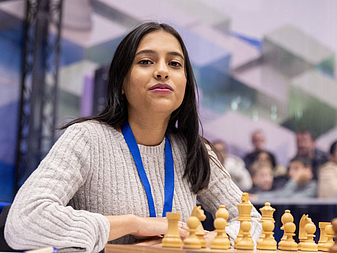Divya Deshmukh’s World Cup win seals India’s chess conquest
From Anand to Gukesh to Deshmukh, Indian Grandmaster have ushed in a quiet revolution

“Indian chess is just unbelievable.” That’s how Judit Polgar reacted to Divya Deshmukh’s World Cup victory on Monday. With those words, the legendary Hungarian Grandmaster — widely regarded as the greatest female chess player in history — echoed what much of the chess world is thinking: Indian chess has truly arrived.
This isn’t the story of a single triumph. It’s the culmination of decades of quiet, strategic ascent — a revolution born of ancient roots and a new generation rewriting the future of the game.
India is no stranger to chess. The game’s earliest form, Chaturanga, was born here. But while the country gave chess to the world, it remained a spectator for much of the 20th century, as Soviet and Russian grandmasters ruled the global stage.
That changed in 1987, when a soft-spoken genius from Chennai — Viswanathan Anand — became India’s first Grandmaster. A decade later, he was crowned World Champion, cracking open the gates of an elite club long dominated by the West.
The Vishwanathan Anand effect
Anand didn’t just win titles — he sparked a cultural shift. His rise was more catalytic than historic.
Chess clubs sprouted across India. Coaching centres multiplied. Children in villages and metro cities alike began devouring chess puzzles and game recordings. What was once a niche pursuit became a national movement.
Tamil Nadu led the early surge, but it didn’t stop there. From Gujarat to Maharashtra, from West Bengal to Telangana, Grandmasters began to emerge from towns and cities that had never before appeared on the chess map.
At the 45th FIDE Chess Olympiad in Budapest, India achieved what no country had done before: gold medals in both the men’s and women’s team events. A double triumph — historic, emotional, and deeply symbolic.
But the best was yet to come.
Enter Gukesh Dommaraju. At just 18, he toppled reigning champion Ding Liren of China to become the youngest World Chess Champion in history. Gukesh’s rise was nothing short of meteoric.
Barely months later, Divya Deshmukh, 19, lifted the Women’s World Cup in the Georgian city of Batumi, becoming India’s fourth woman Grandmaster and the 88th overall — a stunning testament to the nation’s depth of talent.
A new chess culture in India
India isn’t just producing stars. It’s building a chess culture. What began with Anand has become a nationwide ecosystem — self-sustaining, inclusive and ambitious.
The 64 squares have never felt more familiar. Chess, once exported from India, has come home. Not as a relic but as a revolution.
And as Judit Polgar so perfectly put it: Indian chess is just unbelievable.https://gulfnews.com/sport/viswanathan-anand-feels-india-will-be-a-dominant-force-in-world-chess-1.98119812
Network Links
GN StoreDownload our app
© Al Nisr Publishing LLC 2026. All rights reserved.